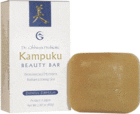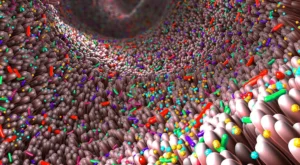Feb 14, 2011
by Fred Pescatore, M.D.

Why should I use probiotics?
Probiotics are getting more and more attention as science discovers how vital they are to many aspects of human health. Probiotics are the friendly lactic acid bacteria (LAB) that live in the intestinal tract and elsewhere in and on the body. They help make many of our vitamins, balance hormones, detoxify harmful substances, maintain healthy digestive pH, support regularity, and help us digest food.
Over 70 percent of the body’s immune system cells are, believe it or not, located in the digestive tract. This system is a major line of defense against pathogenic invaders. In the gut, probiotics play a key role alongside immune system cells, crowding out pathogens and supporting the immune response when bad bacteria show up.
How do probiotics compare to antibiotics?
Antibiotics, which kill good bacteria right along with the bad, are contributing to a growing probiotic crisis. When they were first discovered, antibiotics were a modern-day miracle. Certainly, their wise use has saved countless lives over the years. But the overuse of antibiotic prescriptions and the second-hand consumption of antibiotics from meats, poultry, and fish adversely distress the micro flora colony of the GI tract. Modern diets and daily stress are also really hard on probiotic balance—and that, in turn, can set the stage for poor health.
Without an adequate number of probiotics, we can actually get quite sick. Even mainstream medical doctors are beginning to refuse repeat requests for antibiotics when it becomes apparent that the individual may be in a cycle of illness stemming from a stressed immune system and dwindling probiotic population. As society begins to face the consequences of the overuse and inappropriate use of antibiotics, individuals and families alike are searching for more natural and long-term approaches toward staying healthy.
The proper ratio of good to bad bacteria is 85 percent to 15 percent. For most people, this ratio is difficult, if not impossible, to maintain without the regular supplementation of high-quality probiotics.* It’s especially important to supplement
with probiotics after taking a round of antibiotics. Probiotic supplementation to support immune function is founded on a simple guiding principle: build up the body’s own defenses, so it can fight immune system challenges on its own.
What is a prebiotic, and how does it help the body?
Prebiotics are a less well-known factor in the probiotic health equation. But, they’re vital to the success of any probiotic supplement plan. The body needs probiotics in order to stay healthy, and probiotics need prebiotic support in order to thrive. Prebiotics are substances that nourish the friendly bacteria. They act as a food source, and they help create a pH that is friendly to probiotic life.
On a technical level, prebiotics are a non-digestible soluble fiber. They are found naturally in some foods including: soy beans, garlic, onion, Jerusalem artichoke, jicama, and chicory root. However, it’s difficult to get enough prebiotic support from dietary sources alone. And without that support, even a high quality probiotic supplement may never take root. The best way to ensure the success of probiotics is to supplement with prebiotic support as well.
item4
Are there any simple solutions for obtaining prebiotic AND probiotic support?
Yes! A Japanese product line distributed in North America through Essential Formulas Incorporated actually contains a natural balanced blend of both prebiotics and probiotics. The probiotic formula in Dr. Iichiroh Ohhira’s clinically supported products is fermented for a minimum of three years, using 13 strains of LAB including TH10, a proprietary strain that is more than six times stronger than other LAB strains.
These friendly bacteria are encapsulated along with their culture medium, which includes a nutritious prebiotic food supply. That culture medium contains vital organic acids and natural micro-nutrient by-products such as biogenic enzymes, vitamins, minerals, and amino acids.
These components work together to improve digestive pH and help cultivate the individual’s own unique strains of friendly bacteria. Every person has probiotic strains that are completely unique to them—one of the ways to support those friendly bacteria is to provide prebiotic support.
With Dr. Ohhira’s probiotic extract, not only do the supplemented strains have a better chance of surviving and thriving, the prebiotics also nourish the friendly bacteria already existing in the gut.* This may be the only probiotic capsule on the market today that can support the body in such a comprehensive fashion!
Which Dr. Ohhira’s supplement is right for me?
At natural food stores in North America, there are two Dr. Ohhira’s supplement products available that draw from the strength of this unique probiotic extract: Dr. Ohhira’s Probiotics Original Formula and Dr. Ohhira’s Propolis PLUS. Both products are backed by scientific studies and provide unique immune system support.
The Original Formula contains Dr. Ohhira’s probiotic and prebiotic blend. This is a perfect starting point for anyone looking for complete probiotic support. Complementing that probiotic boost, Propolis PLUS contains a synergistic combination of immune-supporting Brazilian green propolis, antioxidant astaxanthin, and a powdered LAB-fermented vegetable extract. The fermented vegetable extract acts as a highly concentrated source of prebiotic nutrition in the gut and aids in nutrient absorption.
While both products are fantastic for supporting the immune response, Propolis PLUS has the additional benefit of bee propolis. A powerful antioxidant and antibacterial substance, propolis is created by honey bees to protect their hives from bacteria, mold invasion, and other bad things. It provides a similar protective effect when taken by humans as a dietary supplement. Brazilian Green Propolis, is especially powerful due to the rare flora in the region where it is harvested and the unique Africanized honey bees that create it.
Are there any other products that complement a probiotic-based immune system boost?
Another modern dietary challenge that harms overall health and well-being is the poor ratio of omega 3, 6, and 9 essential fatty acids in daily meals. An imbalanced amount of omega-6 is a common factor that contributes to poor overall health.
Essential Fatty Acids (EFAs) in the right ratio help maintain healthy nervous system function and effective, but not over expressed, immune response. EFAs earned their name in that the human body absolutely requires them to survive and thrive, but they must be obtained from daily diet because the body cannot manufacture them on its own. They are vital in their role of aiding nutrient absorption at a cellular level.
Dr. Ohhira’s Essential Living Oils contains a perfectly balanced blend of omega 3, 6, and 9 fatty acids from plant sources. Olive, rice bran, borage seed, sunflower seed, avocado, perilla seed, flax seed, and green tea seed oils together provide this balance of good fats. This is a true vegetarian alternative to fish oil.
Are there any other ways that probiotics help the body?

Probiotics are great for gut health and immune response. But they’re also important to the body’s exterior too. There is a natural probiotic presence living on human skin that helps act as a protective barrier and provides nourishment to dermal cells. Just as probiotics play a role in supporting the immune response by crowding out pathogens in the digestive tract, they play a similar role maintaining dermal health when used topically. Unfortunately, many soaps and other skin products disrupt the probiotic balance.
Dr. Ohhira’s Probiotic Kampuku Beauty Bar contains all natural botanical ingredients and the same incredible probiotic extract used in his dietary supplements. Completely free of additives, artificial fragrances, and any other synthetic chemicals, it helps restore the skin’s natural appearance and works beautifully for super sensitive skin. Using a probiotic approach to skin care is a great complement to any internal probiotic supplement program. After all, the skin is the body’s first line of defense in the immune response!
Article Source: http://www.totalhealthmagazine.com/




